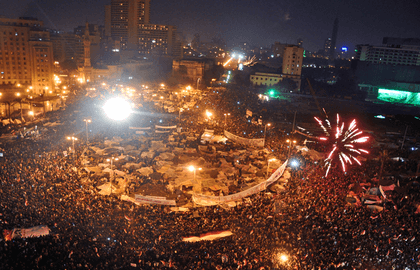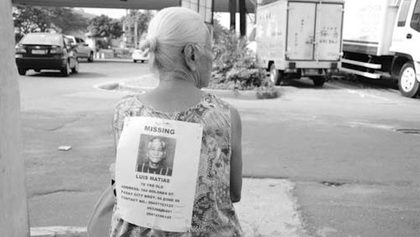SUMMARY
This is AI generated summarization, which may have errors. For context, always refer to the full article.
MANILA, Philippines – In the past year, people all around the world have gone on overdrive on Facebook, Twitter, and other social media networks.
A recent report by online analytics company comScore showed that social networking is now the most popular online activity worldwide, accounting for nearly one in every five minutes spent online.
“The emergence and widespread global adoption of social networks has vastly influenced human interaction on an individual, community and larger societal level, and underscores the convergence of the online and offline worlds,” Linda Boland Abraham, comScore CMO and EVP of global development, said in the company’s press release.
To highlight this point, here’s a list of individuals, groups, and communities whose lives were profoundly affected this year by tweets, status updates, and Youtube uploads.
Maria Aragon. She’s an 11-year-old Lady Gaga fan who, one day, decided to upload a video of her playing the organ and singing her version of the pop hit, “Born This Way.”
The video went viral, and catapulted her from obscurity to fame. She guested on “Ellen,” performed for William and Kate, sang onstage with Mother Monster herself, and became one of dozens of people who became household names this year, thanks to YouTube.
Christopher Lao. If some strike gold through tweets and status messages, there are also those who find infamy, as people are as quick to criticize as they are to praise online. Cyberbullies abound and they can be very unforgiving and insensitive. Case in point: motorist Chris Lao.

When motorist Chris Lao’s car stalled after he unwittingly drove through a flooded street, his interview with a TV reporter after the incident found its way to YouTube, and within days, he became a national punchline.
Citizens of Egypt, Libya, and other Mideast countries. Years of simmering discontent — living under rulers who focused more on their personal survival and wealth accumulation than the good of the country — and a mixture of economic and social problems composed the gunpowder; but social media was its fuse.

So when Tunisian fruit vendor Mohamed Bouazizi ignited himself to death, people across the Arab world decided enough is enough. Social media then helped people mobilize and communicate with each other and to the outside world. Nowhere has social media made a huge impact in 2011 than in the Middle East and North Africa, where the phrase “social media for change” took on a whole new meaning.
Politicians and their cohorts. Social media plus politics equals… (continue the sentence with your choice of word: controversy, scandal, craziness, or whatever). Presidents, lawmakers, and all kinds of political animals became entangled with the web, social media in particular. They fell from grace (see Anthony Weiner), were vilified (see Jacinto and Erlinda Ligot, and other “guests” at the Senate), praised (see Heidi Mendoza), or became fodder for crazy memes (see Ferdinand Topacio). What would politics be without social media? It would be boring, to say the least.
The disaster survivor. News of earthquakes, tsunamis, typhoons, floods and other calamities spread quickly on the web. As people worldwide grappled with the destruction these disasters brought, many people also used Facebook, Twitter, and Google Maps to mobilize help for the victims. Posts for help made their way to many kind-hearted individuals and groups, and in many cases, became the only way for help to reach them. To these people, social media was a literal lifeline.

Lola Aurelia. When Lola Aurelia Matias went looking for her missing husband, a Facebook user snapped a photo of her with the “Missing” poster of her husband on her back. Hundreds of people spread the image, and days later, Lolo Luis was found. The power of social media extended even to those not on it.
You. This year, you became artists. You became journalists. You became social workers. You became entrepreneurs. You became pundits. And you communicated with people everywhere, from your neighbor to people on the other side of the world, real time. – Rappler.com
Add a comment
How does this make you feel?
There are no comments yet. Add your comment to start the conversation.